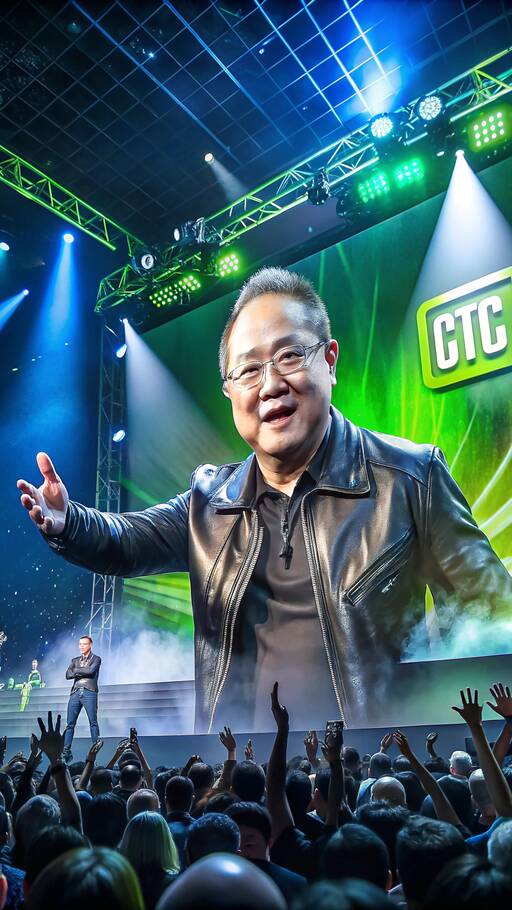
Before Nvidia's CEO Jensen Huang took the stage for his highly anticipated keynote at GTC 2025, excitement was palpable, with a line stretching over a mile. Huang, clad in his signature leather jacket, captured the audience's attention with his charisma and a series of compelling announcements spanning AI, automotive, and entertainment sectors.
Huang announced a strengthened collaboration with General Motors to revolutionize AI applications in automotive manufacturing and self-driving technology. With AI infrastructure investments projected to reach $500 billion and a $10 trillion potential in industrial robotics, Nvidia is leading the charge in future tech transformations. Collaborations with Disney and Google Deep Mind were also revealed, enriching Nvidia’s vision of an AI-driven future.
David Richardson from GM and Norm Marks of Nvidia elaborated on their collaborative efforts. GM plans to utilize Nvidia's Omniverse to create digital twins of manufacturing setups, enhancing both vehicle and facility designs. These detailed simulations will help GM optimize performance, as evidenced by the recent Corvette's speed record triumph.
GM announced the integration of Nvidia's Drive AGX hardware into upcoming vehicles, which will enhance advanced driver assistance systems (ADAS) and pave the way for future autonomous driving technologies.
Waymo’s AI foundations under Dragomir Anguelov were highlighted, with robotaxis already serving 200,000 customers in cities like San Francisco and Austin. Expansion plans include new locations and service enhancements.
Waymo cited impressive safety statistics, boasting fewer incidents compared to human drivers. Waymo’s focus is on its embodied AI, which combines perception data with extensive simulations, ensuring enhanced safety and customer trust.
Rivian's CEO, RJ Scaringe, discussed the challenges in the EV market, emphasizing the need for more affordable options. Upcoming models and the impact of AI and Nvidia technology on enhancing vehicle systems were highlighted.
Scaringe shared the complexities of managing a vast supply chain during Rivian’s launch, a challenge many EV startups face. Future AI applications aimed at streamlining these processes were discussed.
Ford showcased its agentic AI initiatives, which are improving vehicle design, engineering, and customer support. AI agents are expediting design processes, conducting test simulations, and increasing customer service accuracy, sharpening Ford’s engineering capabilities.
Agentic AI is redefining automotive support and information retrieval, offering users precise information through advanced chatbots and personalized interactions.
GTC 2025 highlighted AI’s transformative role across the automotive industry. From Nvidia’s partnerships with GM and Rivian to Waymo’s advanced safety metrics, this technology is not only enhancing vehicles but also redefining the entire automotive experience. The future of driving is digital, and as AI’s influence grows, boundless opportunities await.